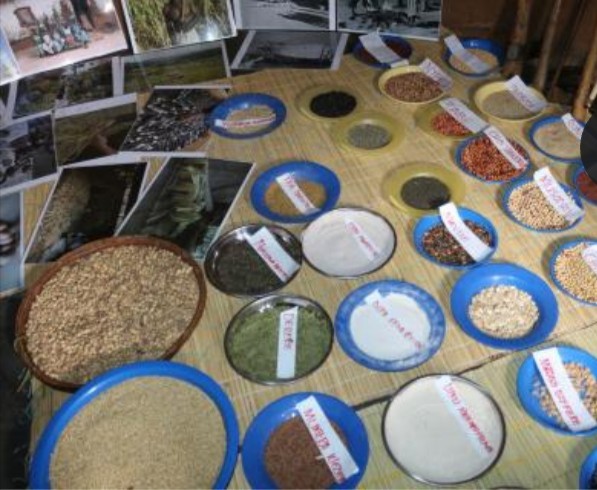By Joice Mukucha (Staff reporter)
Action Aid Zimbabwe is at the forefront of building the country’s resilience to climate change-induced shocks and disasters that affect food and nutrition security.
The institution has partnered the Government in launching the Zimbabwe Food Security Policy Brief after noticing the impacts of climate change-induced shocks such as Cyclone Idai and Kenneth which have put the country’s food security in a precarious position and among the worst in the Southern African Development Community (SADC) region in the past three decades.
The 2020 policy seeks to foster recovery from the food crisis through resilient, accountable, and gender-responsive agricultural development driven by agroecology principles that anchor the Zimbabwe National Agricultural Policy Framework.
Effective short and long-term responses to building resilience in the country’s food systems are expected to address the factors that cause vulnerability to shocks and stresses.
The region is said to have close to 44.8 million people estimated to be food insecure as of July 2020, representing a 67% increase from 2017 (26.9 people) and a jump of 10% from just a year ago (41.2 million people) (SADC 2020).
Close to 7.7 million people in Zimbabwe were estimated to be food insecure as of July 2020, representing a 40% increase from 2019 (5.5 million people) (SADC 2020). Maize production dropped in 2019 to 770 000 tonnes from a high of 2.155 million tonnes in 2017.
Wheat production dropped from 160 000 tonnes in 2017 to 94 700 tonnes in 2019 but picked to a high of 190 000 tonnes in 2020. According to Action Aid, clearly, rainfed agriculture suffered more, pointing to the need to invest more in mitigating against environmental shocks.
The Zimbabwe National Agricultural Policy Framework adopts agroecology as the anchor to resilient and sustainable agriculture.
In an interview with Spiked Online Media, a Member of Parliament for Guruve South Constituency who is also a member of the Agriculture Committee, Honourable Patrick Dutiro this week said there was a need to find mechanisms for the country to adapt to climate change issues. He indicated that people should do more in as much as water harvesting is concerned to curb drought.
“We have so many challenges that we are facing as a nation in terms of food security because we used to rely on rainfall which falls from November to March. It is important that water harvesting and borehole drilling are taken more seriously,” he said.
He also commended great work that is being done by rural women in far as water harvesting pertains.
“Women are very creative and they are doing a lot of water harvesting in their communities. They are able to irrigate their farms which go throughout the year providing food to every household.”
The role of women, he added, can not be overemphasized. He stressed that the moment women are empowered, the whole nation is also empowered.
Action Aid Zimbabwe Executive Director, Mr Joy Mabenge said there was a need for Government and other stakeholders such as Non-Governmental Organisations and UN agencies to come together and find ways in preventing disasters before they occur.
He also indicated that Action Aid does not operate in humanitarian aid without putting women in front.
“Our humanitarian signature talks about women’s leadership in humanitarian emergencies. For us, we feel that women are adversely affected by all disasters with food insecurity included so we strongly believe that women must take a lead in terms of dealing with food insecurity,” he said.
Action Aid Zimbabwe also pointed out that effective and long-lasting responses to the impacts of climate change and other disasters on the food security situation in Zimbabwe made obvious by the COVID-19 crisis call for transformation in the current agricultural approaches.
The Policy Brief recommends provision of short-term, medium to long term and long term strategies to ensure robust and purposeful national investment towards building resilience.
The short-term include the expansion of sustained investment into local social services in health for example building new centres, acquisition and installation of new hospital equipment.
In the Medium to Long Term, it is suggested that there should be climate proofing of agriculture so as to ensure the resilience of food systems by investing in sustainable agriculture and rural development grounded on scaling out and scaling up agroecological initiatives as anchors for improved food availability and household purchasing power.
As for Long Term, the organization pointed out that there was a need for decentralisation of power to local communities (Community Based Adaptation) with a focus on women-led and youth-led accountability mechanisms, for their full participation in the formulation and implementation of policies and programmes that affect them as well as improve collaborative competences through capacity building.






